The Bulgarian president fights back
Adelina Marini, September 8, 2009
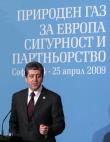 A little after the president was publicly humiliated because of the ridiculous incident with his landing in Skopie to meet the relatives of the 15 Bulgarians, tragically drowned in the Ohrid lake, the president published on the website of the presidency a large and, we should admit, quite well-grounded position about the energy policy which Bulgaria has led so far and should follow in the future. The article is more than detailed and although there is a sense of pecking at the current government, the article still deserves to be put as a basis for a really broad and public discussion.
A little after the president was publicly humiliated because of the ridiculous incident with his landing in Skopie to meet the relatives of the 15 Bulgarians, tragically drowned in the Ohrid lake, the president published on the website of the presidency a large and, we should admit, quite well-grounded position about the energy policy which Bulgaria has led so far and should follow in the future. The article is more than detailed and although there is a sense of pecking at the current government, the article still deserves to be put as a basis for a really broad and public discussion.
In the article the president Georgi Parvanov criticizes the new government because of the various signals it gives on already debated large-scale projects like "South Stream", "Nabucco", the deals with Gazprom for gas deliveries and the second nuclear power station "Belene".
With regard to "South Stream" the president says that the prime minister Boyko Borisov has 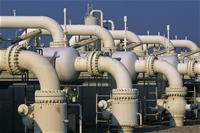 missed his chance to protect the national interest during his meeting in Gdansk last week with the Russian prime minister Vladimir Putin. According to Parvanov, there are many unsolved issues, related to the financing of this project. "It is necessary with this project all the requirements of the EU for free access of other owners of natural gas to this pipe if there is free capacity in this pipe to be met. Instead of claiming that with "South Stream" everything is OK, the prime minister should have used the meeting with Mr. Putin to react against such pretenses", Georgi Parvanov writes.
missed his chance to protect the national interest during his meeting in Gdansk last week with the Russian prime minister Vladimir Putin. According to Parvanov, there are many unsolved issues, related to the financing of this project. "It is necessary with this project all the requirements of the EU for free access of other owners of natural gas to this pipe if there is free capacity in this pipe to be met. Instead of claiming that with "South Stream" everything is OK, the prime minister should have used the meeting with Mr. Putin to react against such pretenses", Georgi Parvanov writes.
Beside this, the article points out that not only this but also other projects face geographic and geopolitical challenges. For example, regarding "Nabucco" Bulgaria might take the initiative and not wait for the EU, because "with Turkey we have a general agreement to use its gas pipelines network on a reciprocal basis, on the same conditions and prices as the Russian gas deliveries through Bulgaria for Turkey. We will have the cooperation of Turkey but here activity is needed - for solving some "frozen" for a long time projects (like the project for the construction of a dam on the Tundzha river)".
The president once again reminds his old idea the government to raise the issue for the conclusion of a new long-term contract with Gazprom until 2030. "It is unexplainable why the prime minister and his team do not raise the issue for a new long-term contact with Gazprom, aimed at achieving better and more flexible conditions for gas deliveries until 2030 (or the government supports the remaining of the intermediaries and that is why they earn a lot of money at the expense of the Bulgarian citizens?)"
 And regarding the construction of our second nuclear power station, the president can't understand, according to the article, why the government makes confusing signals. But it is interesting why exactly the president calls for transparency in the realisation of "Belene" since all the attempts of the society in Bulgaria to receive more information about the project were unsuccessful during the term of the previous government and the president did nothing to change this. More specifically, Mr. Parvanov claims that the crisis cannot be an argument against but in support of the construction of "Belene" because investments in large infrastructure projects can be used as the so much needed "locomotive" that will pull us out economically and socially of the crisis.
And regarding the construction of our second nuclear power station, the president can't understand, according to the article, why the government makes confusing signals. But it is interesting why exactly the president calls for transparency in the realisation of "Belene" since all the attempts of the society in Bulgaria to receive more information about the project were unsuccessful during the term of the previous government and the president did nothing to change this. More specifically, Mr. Parvanov claims that the crisis cannot be an argument against but in support of the construction of "Belene" because investments in large infrastructure projects can be used as the so much needed "locomotive" that will pull us out economically and socially of the crisis.
The president also binds the energy discussion with the new climate change deal that has to be signed in Copenhagen in the beginning of December in the context of nuclear energy by saying that the "Belene" project will increase with over 35% the production capacity of our system which will secure our efforts for a cleaner energy mix. A large part of the article of the Bulgarian president is dedicated to this project.
Further on he criticizes the hesitation of the new government regarding the project for the construction of an oil pipeline "Burgas_Alexandroupolis". The argument of the president are really very detailed on this issue too.
In conclusion Mr. Parvanov reminds that the election campaign is over and now it's time to prove managing capacity and skills. He says that there is a deficit of competence in the energy policy. "No one was born knowing everything but no one should make a campaign of not knowing".
euinside will indulge to recommend the president, not only the government, to get out of the comfortable role which his institution gives him and make the first step by unveiling everything he knows on energy policy. It is worth mentioning that he has participated in many high level conversations; he also organised an energy forum in Sofia. It would be right if energy policy is not used as an exchange coin between the government and the presidency. After all the president and the government have mandates but the national interest has no mandate and deserves to finally get attention and, most of all - public discussion.
In response to this, the Government Information Service reacted immediately by sending the position of the prime minister. In it Mr. Boyko Borisov says: "I don't see how there can be continuity in something that never existed. Beside bare words on the projects "Belene", "Burgas-Alexandroupolis" and 'South Stream" there is nothing else if we do not count the three first digs and the destruction of the site of "Belene". The basic upbringing requires and the world practice too, that the opposition should give 100 days to the new government". And although the president has been elected being a member of the Bulgarian Socialists Party, under the Constitution he is not politically bound and that is why he cannot be perceived as an opposition.
 Further in his statement, the prime minister reminds in short all the failures of the previous government as well as the lack of a thorough estimation of those failure, given by the president. According to Mr. Borisov, the article of the president is nothing more than a reaction of jealousy because of the direct relationship that he has established with his Russian colleague Vladimir Putin: "the mutual confidence and direct relationship, established between me and the Russian premier Vladimir Putin, awake human envy which, for me, is understandable".
Further in his statement, the prime minister reminds in short all the failures of the previous government as well as the lack of a thorough estimation of those failure, given by the president. According to Mr. Borisov, the article of the president is nothing more than a reaction of jealousy because of the direct relationship that he has established with his Russian colleague Vladimir Putin: "the mutual confidence and direct relationship, established between me and the Russian premier Vladimir Putin, awake human envy which, for me, is understandable".
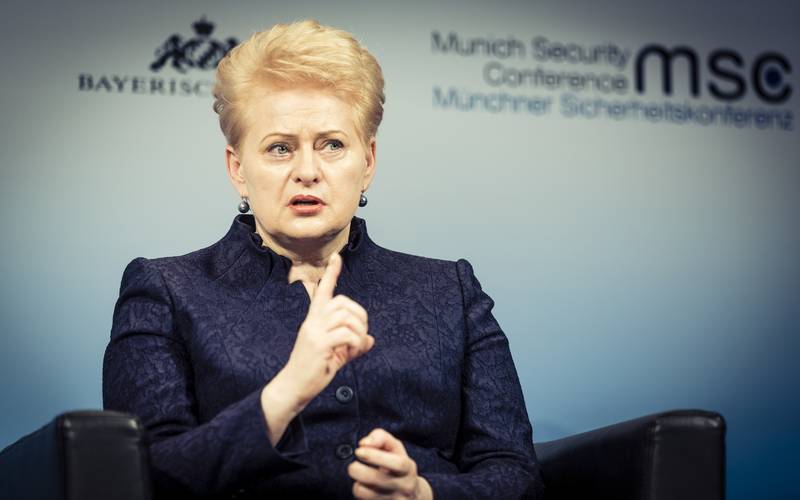 Dalia Grybauskaite | © MSC/Koerner
Dalia Grybauskaite | © MSC/Koerner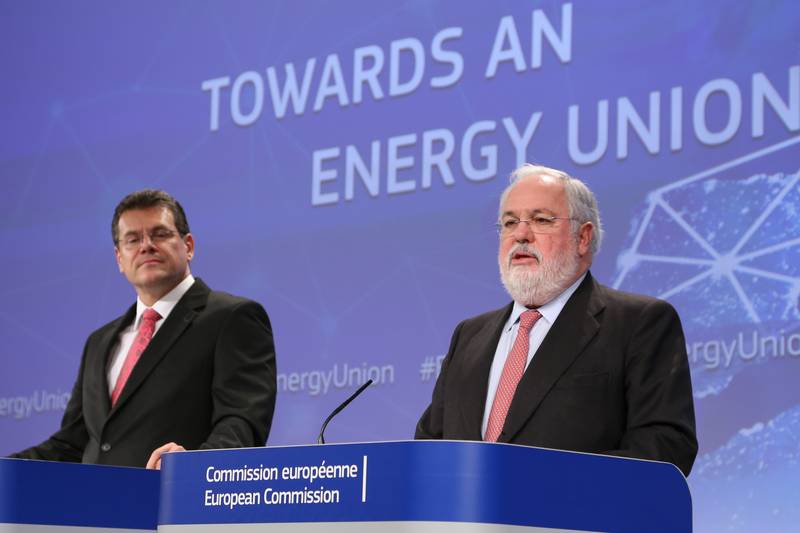 Maros Sefcovic, Miguel Arias Canete | © European Commission
Maros Sefcovic, Miguel Arias Canete | © European Commission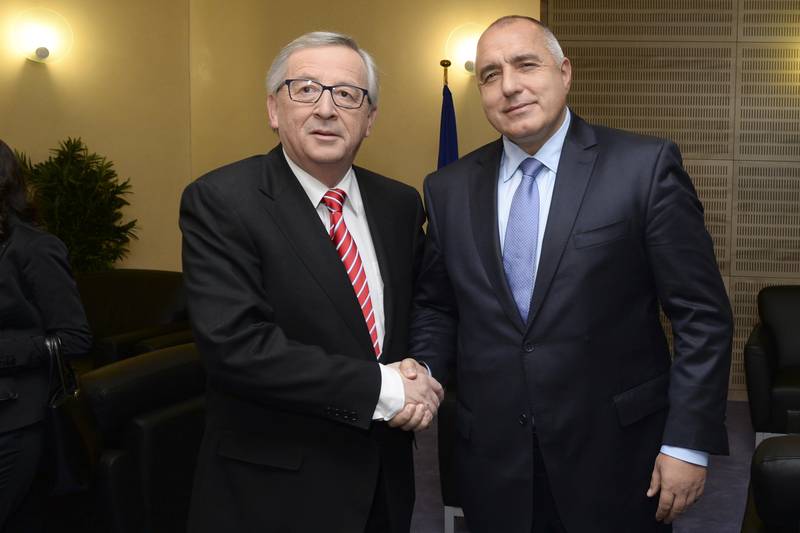 Jean-Claude Juncker, Boyko Borissov | © European Commission
Jean-Claude Juncker, Boyko Borissov | © European Commission